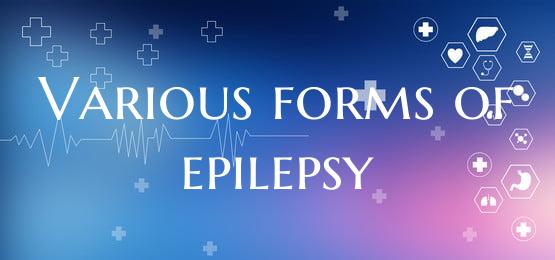
Various forms of epilepsy
Epilepsy is a neurological disorder characterized by recurrent seizures. There are various forms of epilepsy, each with its own distinct features and underlying causes. Here are some common forms of epilepsy:
1. Idiopathic Generalized Epilepsy: This type of epilepsy typically begins in childhood or adolescence and is characterized by generalized seizures, meaning they involve both sides of the brain simultaneously. The cause of idiopathic generalized epilepsy is often genetic.
2. Temporal Lobe Epilepsy: Temporal lobe epilepsy is the most common form of focal epilepsy, where seizures originate in one specific area of the brain. Seizures in this form of epilepsy often involve unusual sensations, emotions, or memories, and may be associated with damage to the temporal lobe due to head injury, infection, or brain tumor.
3. Frontal Lobe Epilepsy: Seizures in frontal lobe epilepsy originate in the frontal lobes of the brain, which control movement, behavior, and emotions. These seizures may present as unusual behaviors, such as motor movements or altered consciousness. Frontal lobe epilepsy can be challenging to diagnose due to its varied symptom presentation.
4. Juvenile Myoclonic Epilepsy: This form of epilepsy typically begins in adolescence and is characterized by myoclonic seizures, which involve sudden, brief muscle jerks. Individuals with juvenile myoclonic epilepsy may also experience generalized tonic-clonic seizures. The exact cause of this epilepsy form is not well understood.
5. Lennox-Gastaut Syndrome: Lennox-Gastaut syndrome is a severe form of epilepsy that often begins in early childhood. It is characterized by multiple seizure types, including tonic, atonic, and atypical absence seizures. Intellectual disability and behavioral problems are common in individuals with this syndrome.
6. Photosensitive Epilepsy: This type of epilepsy is triggered by visual stimuli, such as flashing lights or patterns. People with photosensitive epilepsy may experience seizures in response to certain visual stimuli. Management often involves avoiding triggers and, in some cases, wearing specially tinted glasses.
Each form of epilepsy requires a personalized treatment approach, which may include antiepileptic medications, ketogenic diet, surgery, or other interventions. Early diagnosis and proper management are crucial in improving the quality of life for individuals living with epilepsy. If you suspect you or someone you know may have epilepsy, it is essential to consult with a healthcare professional for proper evaluation and diagnosis.